What's the difference between a tourist and a traveler? Holidify, a platform helping users find the best travel destinations across many countries in Asia, released a series of images illustrating their interpretation of this question.
Are you the kind of person who thoroughly plans every aspect beforehand or do you embrace the thrill of the unforeseen and allow yourself to be immersed in spontaneous adventures?
What do you think of this comparison? Vote on the best image below, or share your opinion in the comments section!
More info: holidify.com | Instagram | Facebook | twitter.com
#1
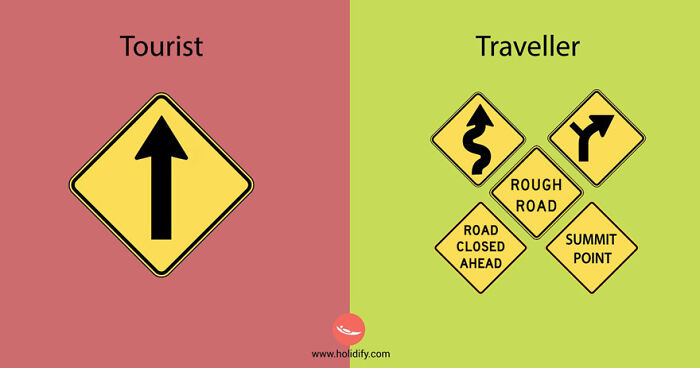
Image credits: holidify.com
We got in touch with Rohit Shroff, co-founder of Holidify, to learn more about them and this project. Firstly, we were curious to know how Holidify was born. Shroff shared that Kovid Kapoor (another co-founder) and he were friends at university and they'd always wanted to start a company.
"After we graduated and took jobs, we continued brainstorming on various ideas that we could pursue. We also used to travel together to various places since we finally had some earnings coming from our respective jobs. While on one of those trips, we figured that while there are so many beautiful places in India (and the world), there was no single platform that could give reliable and comprehensive information in a structured way. We got very excited because we both loved traveling, and it felt like we were ready to give a significant portion of our life to working in the travel industry. We launched a private beta version within a few weeks to check if the idea could work, and we got very exciting responses from people. I decided to quit my job and start working on this full-time. We finally launched Holidify in January 2014, and within a year or so, we had more than 100,000 users on a monthly level!" That's a truly impressive journey!
#2
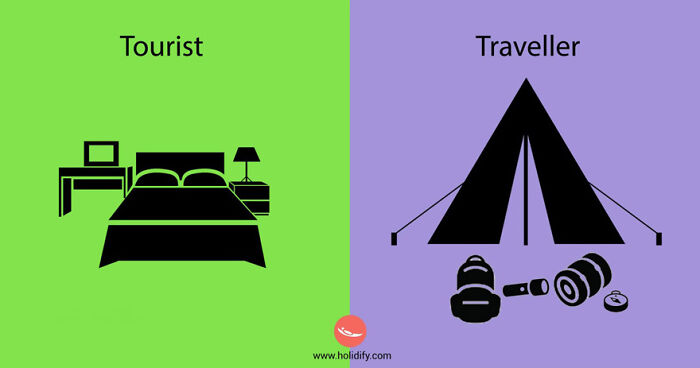
Image credits: holidify.com
#3
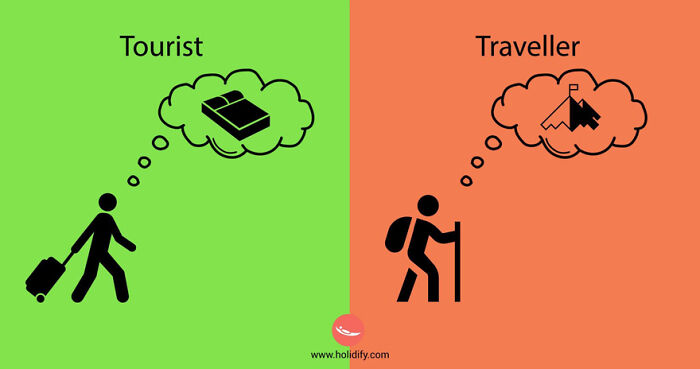
Image credits: holidify.com
Shroff told us that the original idea behind these 'tourist vs. traveler' illustrations came from one of the friendly banters between some of their team members. "Someone had just returned from a trip, and we were just listening to her travel stories. And other people also started talking about their recent travel experiences. While everyone had their unique perspectives about how they traveled, we noticed that there are some commonalities and differences between how people travel, and that’s when we thought we should publish an article about this. We ended up doing illustrations instead, but we never imagined the kind of response it would get."
#4
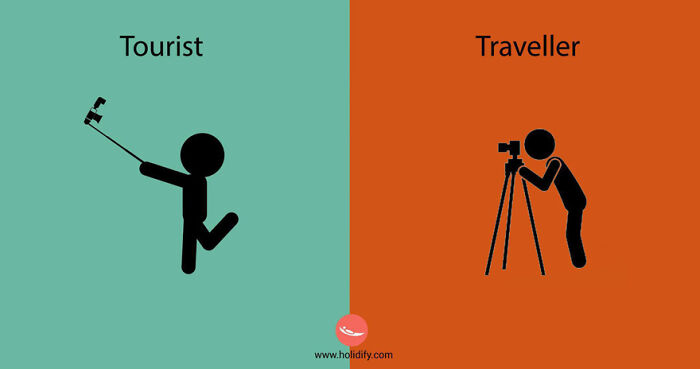
Image credits: holidify.com
#5
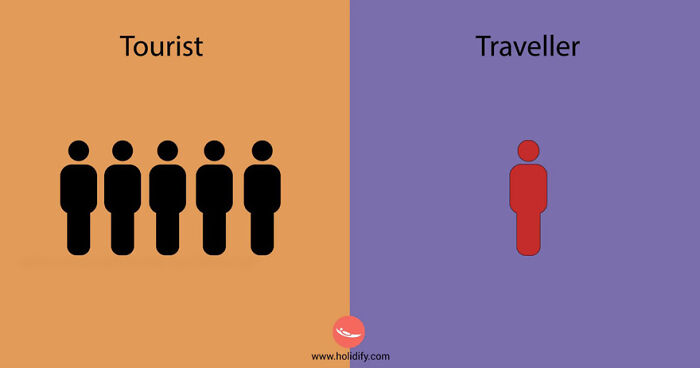
Image credits: holidify.com
"The key distinction between a tourist and a traveler is that the travelers are okay with getting out of their comfort zone to explore places and strive to engage more deeply with the local cultures. They’re not super fussy about their hotel or how comfortable their flights or commute are. Their focus is on the experiences irrespective of the facilities they get. These illustrations were done around 7-8 years ago, and honestly, I feel that everyone has their unique style of traveling, and no style is better than other styles. And we have also noticed that some people change their travel styles depending on the type of destination or the group in which they’re traveling or sometimes just the mood and energy level in their lives."
#6
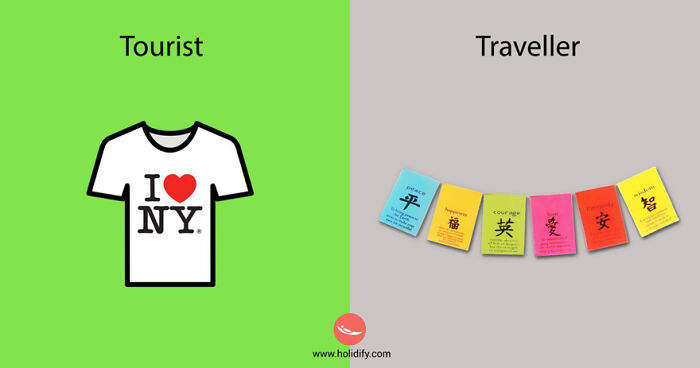
Image credits: holidify.com
#7
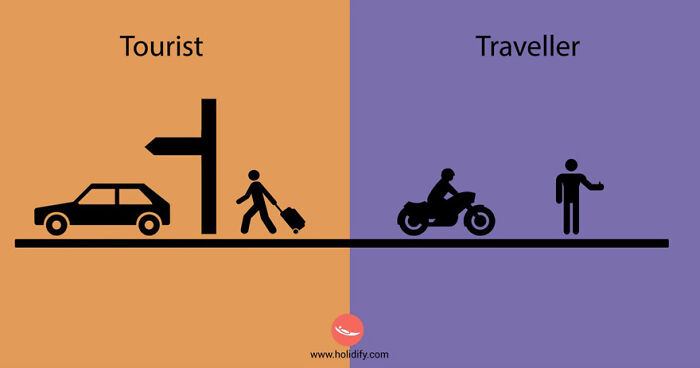
Image credits: holidify.com
According to Shroff, Holidify helps people plan their trips across many countries in Asia and they're slowly expanding to Australia, Africa and Europe!
"Using our in-depth, comprehensive travel guides, users can decide their next travel destination and read about the places to visit there, along with information such as the best time to visit, how to reach there, which hotel to book, and also get customized packages from travel agents. We’ve partnered with over 3,000 travel agents (mostly in India and other parts of Asia), and we connect travellers with these travel agents to customize and book their trips. We’ve also partnered with various OTAs, including Booking and Agoda, and created curated listings of hotels across these regions catering to different travel needs and use cases."
#8
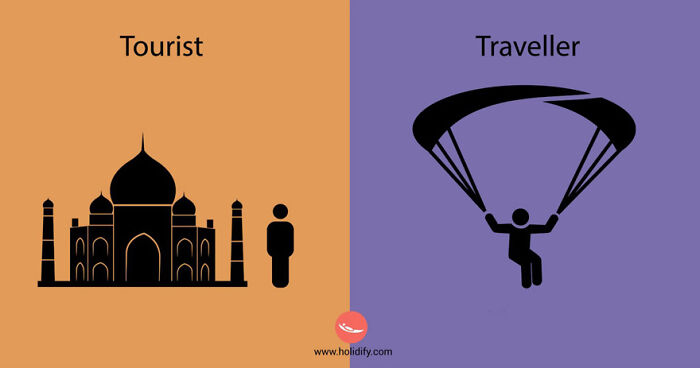
Image credits: holidify.com
#9
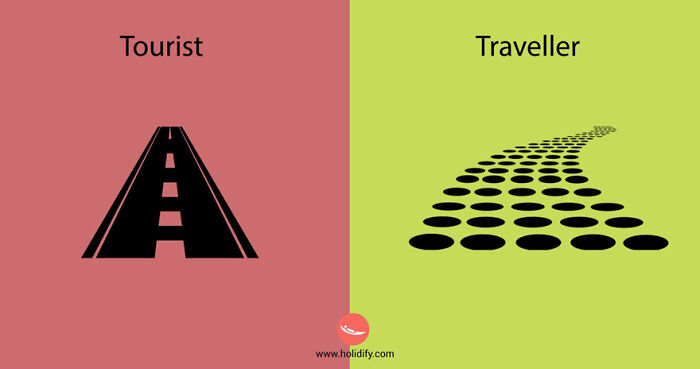
Image credits: holidify.com
Shroff shared that in Asia, they see different traveling trends in different seasons. "During the summer months, the Indian destinations that are in the mountains get a lot of visitors. These places are generally in the northern Himalayan states of Jammu and Kashmir, Himachal Pradesh, Uttarakhand and Sikkim. Apart from these cool places, people also travel to certain destinations in South-East Asia, which have a relatively dry season. Places like Maldives, Koh Samui (Thailand), Bali (Indonesia), Vietnam, etc. are seeing a lot of interest in our customer base.
We’re also noticing people traveling more frequently after the pandemic and for longer durations. The love for traveling has only increased after living for such a long period of time under lockdowns. And with remote working, people are also taking workations along with their vacations. Everywhere you go these days, everything is sold out, including flights and hotels. People need to plan their trips a little well in advance unless they’re ready to shell out a lot of extra money for their trips."
"Instagram has obviously become a source of inspiration for people. People really love places that are extremely beautiful and are 'Instagram-friendly'. In fact, a lot of people are booking tours that take you to the most 'Instagrammable' places in various parts of your destination. People love these 'Instagram-friendly' experiences like the giant swings in Bali, the coconut groves of Goa, or the water villas in Maldives," Shroff added.
#10
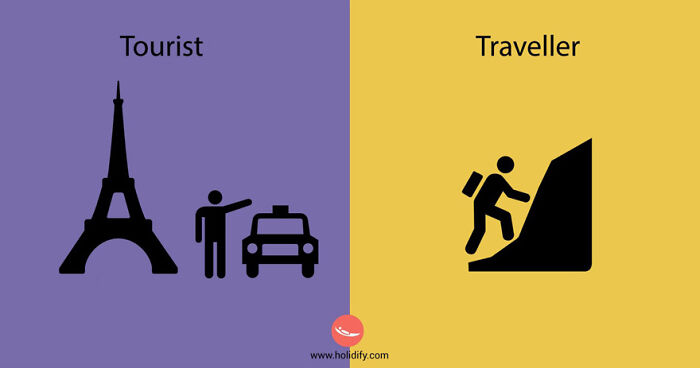
Image credits: holidify.com
#11
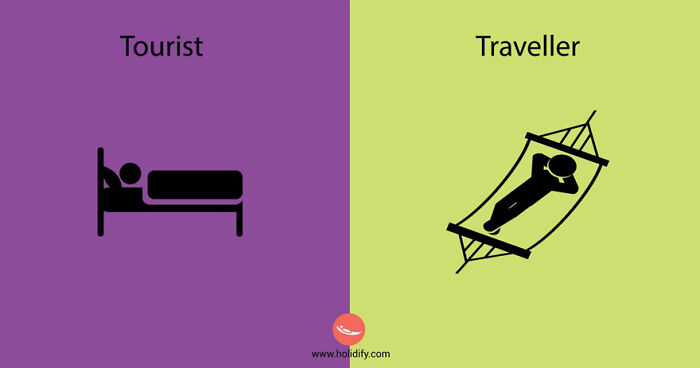
Image credits: holidify.com
#12
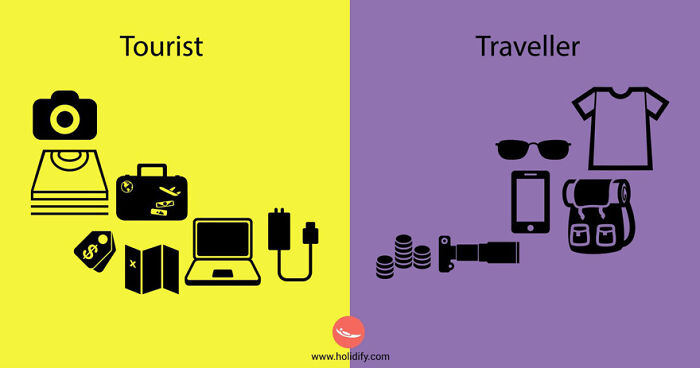
Image credits: holidify.com
from Bored Panda https://ift.tt/rkaUspd
via Boredpanda